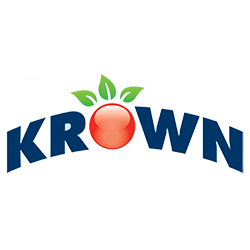With billions of fruit and vegetable dollars at stake on both sides of the U.S.-Canada border, industry leaders are urging for the resumption and protection of free produce trade.
In a congratulatory letter to Canadian Prime Minister Mark Carney on April 29, Canadian Produce Marketing Association President Ron Lemaire put the U.S. and Canada’s mutually dependent produce industry trade into perspective.
“In 2024 alone, Canada imported close to $5.5 billion in fresh produce from the U.S., representing a little less than half of all fresh produce imports,” he said in the letter. “Just as important, Canadian companies exported just over $4.5 billion in fresh produce to the U.S., comprising more than 97% of [Canada’s] fresh produce exports.”
To get CPMA’s take on the recent elections and the path forward for produce relations, The Packer spoke with Lemaire following Carney’s victory.
“We’re pleased. We were ready to work with either the conservatives or liberals, and we knew it was going to be a two-party race,” Lemaire said. “The positive thing is that we have a strong relationship with the leadership within the Carney campaign.
“We’re also hopeful that Kody Blois will return as the minister of agriculture. He has a very strong understanding of our sector, coming from an apple region,” he continued. “But on top of that, he joined me in Washington to meet with Chairman [Glenn] Thompson of the ag committee group and other congressmen and senators a year ago to talk about Canada-U.S. agritrade and how we work together, so he understands the Canada-U.S. trade framework and the importance of how we work to find solutions.”
But U.S.-Canada relations have been strained in the Trump administration’s first 100 days, with a Feb. 1 imposition of 25% tariffs on goods imported to the U.S. from Canada and Mexico — which was later amended — as well as President Donald Trump’s comments that Canada “should be the 51st state.”
Carney addressed this new phase of Canadian-American relations in his victory speech on April 29.
“Who’s ready to stand up for Canada with me?” he asked the audience. “As I’ve been warning for months, America wants our land, our resources, our water, our country — never. But these are not idle threats. President Trump is trying to break us so that America can own us. That will never — that will never, ever happen.
“We are once again in one of those hinge moments of history. Our old relationship with the United States — a relationship based on steadily increasing integration — is over,” Carney continued. “The system of open global trade anchored by the United States, a system that Canada has relied on since the Second World War, a system that will not be perfect [but] has helped deliver prosperity for our country for decades, is over. These are tragedies, but it’s also our new reality.”
The Packer asked Lemaire if Carney’s remarks signal irreparable damage to U.S.-Canada relations.
“Carney’s speech was rallying, and you have to recognize [that] in his role, he now has the power to do what’s best for the population in Canada,” Lemaire said. “But time, as they say, heals all wounds. What the timetable will be to sort of mend the fence, that’s the bigger question.
“I think the steps that we have to take as industry is to continue to work together,” he added. “Where we need to go next is making sure we hold the [Canadian] government accountable to the list of priorities we shared in our letter to the prime minister.”
In its April 29 letter to Carney, which referenced “growing political uncertainty with our largest trading partner” as well as port disruptions, escalating severe weather events and “continuing consumer concerns about the cost of food” as significant challenges for the Canadian fresh produce sector, CPMA also urged the Canadian government to exclude fresh fruits and vegetables from retaliatory tariffs against the U.S.
On March 4, in response to the Trump administration’s initial tariff implementation, the Canadian government announced retaliatory tariffs of 25% on products imported from the U.S., and while they are largely automotive-focused, they do include tariffs on a handful of U.S. produce items such as cherry tomatoes, citrus, stone fruit, nuts and snap beans.
“In the interest of supporting a healthy population, a resilient food system, and a competitive domestic industry, so long as Canadian fresh produce is granted tariff-free entry into the United States, we request that fresh fruits and vegetables should be excluded from any retaliatory trade measures against the United States, and that steps should be taken to remove the existing tariffs on U.S. produce items to protect Canadian produce exporters from potential retaliation that would have devastating impacts on domestic fruit and vegetable growers, particularly in the greenhouse sector,” Lemaire wrote in CPMA’s letter to the prime minister.
“Caretaker mode is finished with bureaucrats, so we can begin more thoroughly engaging the bureaucratic level through finance,” Lemaire told The Packer. “The challenge of finance and the responses we’ve been getting is they’re still concerned with the so-called ‘fentanyl-based tariffs’ that the U.S. has in place on items like steel and aluminum and some other key Canadian items. And their comment to me in a discussion with other allied associations was, ‘We need to see some movement on the U.S. fentanyl tariffs that are at play.’
“At the same time, we reiterated that fruit and vegetables are under [the U.S.-Mexico-Canada Agreement], and this is a challenge for our industry when we are dealing with food and food security and the cost of food, especially in a continuous, turbulent time of supply chain inefficiencies,” Lemaire continued. “So, we’re urging the government to look at food separately and to do the right thing and remove the tariffs so that we can move forward and make sure Canadians and Americans can enjoy fruits and vegetables in both countries.”
Greenhouse-grown in the balance
With some 80% of Canadian greenhouse-grown produce exported to the U.S., the possibility of indoor ag being caught in the crosshairs of a trade war is a chief concern for the CPMA.
“We’ve already clearly articulated in the letter to our prime minister our concerns on retaliatory efforts,” Lemaire told The Packer. “If retaliation is taken on our greenhouse industry — tomato industry — it’s catastrophic relative to the high volume of product going to the U.S.
“Nobody wins in this situation,” he continued. “This has been the same from the very beginning of tariffs. All this does is drive costs into the system. It causes consumers to have either less availability of product and/or higher cost of product. We need to rectify it, and we’ll continue to push the Canadian government with our allied partners. We need to work between associations and within our jurisdictions to effectively push the governments to make the right decision.”
Navigating a minority government
Lemaire said the key for CPMA in bringing its fresh produce message to the Canadian government is that, with a minority government, there’s a need to also rely on the opposition.
“Interestingly, the leader of the conservative party did not win his seat. So, they’re now in a process of how to navigate that system, whether or not they pick a new leader, or if he is moved into a seat that was already won and someone allows him to sit in his seat — that could happen,” he said. “We’re waiting to hear how the conservatives will react to that. And the New Democratic Party also lost their leader, so we anticipate them to look for a new leader.”
Lemaire says that with the liberals having a minority, they will need to work with the Bloc Quebecois, the conservatives and a small group of NDP to keep their agenda moving forward.
“And this is what’s very important,” he said. “We need to ensure we’re working with all parties now in a minority, where before it was opposition control, [which] really keeps the government accountable.
“So, it’s interesting times in Canada,” Lemaire added. “But we’re confident that with the relationships we have with the conservatives, with the Bloc Quebecois as well, and those leftover New Democrats, we will be able to work with the opposition to help maneuver our agenda, in addition to working with the government itself.”
Your next read: CPMA’s Ron Lemaire talks trade wars ahead of Montreal show















